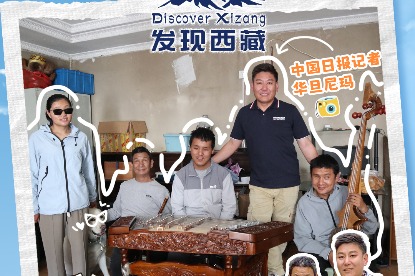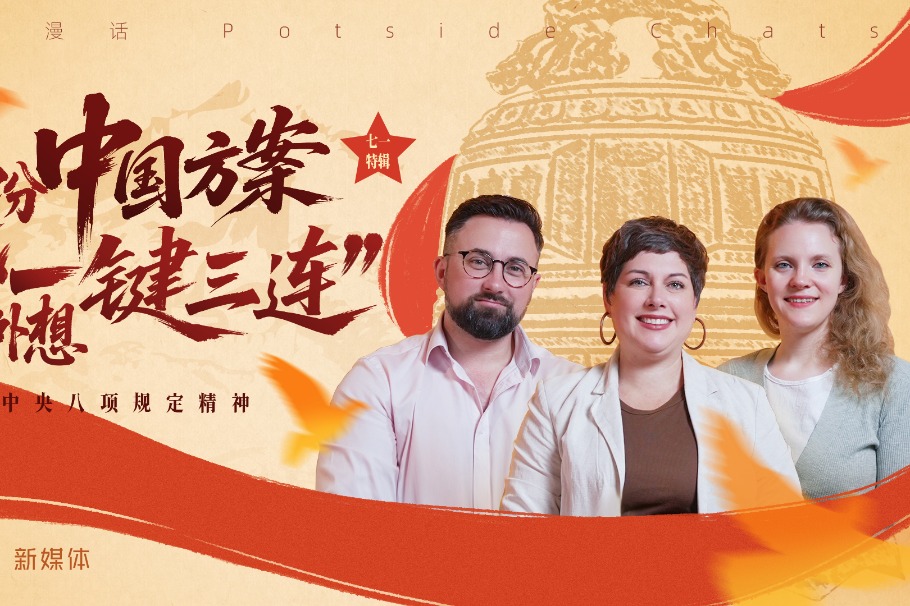Concurrence of choice


ZHANG YUJUN/FOR CHINA DAILY
The Dar es Salaam Consensus is an effective road map for deeper collaboration between Africa and China
The China-Africa Dar es Salaam Consensus, jointly released by scholars from 50 countries at the 13th Meeting of the China-Africa Think Tanks Forum held in Tanzania's port city of Dar es Salaam in March, is playing an important role in shaping the relationship between Africa and China by offering a framework to enhance collaboration and ensure mutual gains. Complementing existing platforms such as the Forum on China-Africa Cooperation, it serves as an avenue for Africa to ensure it has a voice in its dealings with China. Rooted in the principles such as mutual respect, solidarity, win-win cooperation, openness, and common prosperity, the Consensus underscores the importance of fostering inclusive partnerships and shared prosperity on a global scale.
The Das es Saalam Consensus emphasizes the critical importance of prioritizing development and adopting a collaborative and respectful approach to achieving it. It asserts that development goals must be at the forefront of all decision-making processes and actions. By doing so, we can significantly improve the economic, social and political well-being of people. Development is not merely about economic growth but encompasses an improvement in people's living standards and sustainable development.
Focusing on growth that benefits everyone, while respecting each country's unique needs and experiences, is a fundamental principle of the Das es Saalam Consensus. It encourages think tanks, policymakers, and other stakeholders to work together to develop strategies that align with their unique contexts and priorities. This collaboration is essential for creating a global order that is equitable and just. By advocating for a development paradigm that respects the sovereignty and unique circumstances of each country, the Consensus aims to create an environment where all nations can thrive.
The Das es Saalam Consensus is pivotal for South-South cooperation as it offers a comprehensive framework for fostering collaboration among developing countries. It emphasizes the importance of shared development goals, encouraging countries in the Global South to pool resources, knowledge, and expertise to tackle common challenges such as poverty, health and infrastructure development.
Africa-China relations exemplify South-South cooperation, showcasing strategic alliances that drive mutual growth and development. Chinese investments in Africa mobilize resources for projects aligned with South-South cooperation goals, enhancing economic development and regional integration. Both Africa and China advocate for policies that support the interests of the Global South, promoting a more balanced global economic and political order. The partnership between Africa and China sets a model for other South-South collaborations, emphasizing the benefits of strategic cooperation and shared development objectives.
Leveraging the Dar es Salaam Consensus to strengthen South-South cooperation can extend its benefits beyond Africa and China. Sharing experiences and best practices with other developing regions and collaborating on global issues can amplify the impact of the Consensus. Engaging with international organizations and agencies can provide additional support and resources, ensuring that the goals of the Consensus are met effectively and sustainably.
To effectively implement the Dar es Salaam Consensus, a multifaceted approach is required, starting with policy alignment, capacity building, monitoring and evaluation, public diplomacy and sector-specific collaboration.
By aligning national policies with the principles of the Consensus, countries can ensure that their cooperation frameworks and strategies are designed to benefit both sides equitably and sustainably. Investing in the development of local think tanks and research institutions in Africa and China is crucial for enhancing analytical capabilities and proposing effective solutions that address shared challenges.
Capacity building is crucial for the success of the Consensus. Investment needs to be done in the development of local think tanks and research institutions in both Africa and China. Workshops, seminars and conferences that bring together experts from both sides to share knowledge and best practices for the building of think tanks need to be organized. Strengthening think tanks and research institutions in Africa and China will enhance their ability to analyze complex issues and propose effective solutions. Promoting joint research projects, workshops and knowledge-sharing platforms can foster a deeper understanding of shared challenges and opportunities. This collaborative effort will ensure that both African and Chinese think tanks are well-equipped to support and guide the implementation of the Consensus.
Sector-specific collaboration is a pivotal approach to effectively implementing the Consensus because it addresses key areas essential for sustainable development and mutual growth. By focusing on specific sectors such as infrastructure, agriculture, health care and education, both Africa and China can leverage their strengths and resources to tackle pressing challenges and promote inclusive development. The Consensus can ensure that efforts are targeted and effective, addressing the most critical areas for development.
Public diplomacy and communication efforts are necessary to promote positive narratives about the Consensus. Highlighting successful cooperation projects and initiatives to showcase the benefits of Africa-China collaboration can foster greater public support for the Consensus. Think tanks must work together to actively address misconceptions and negative stereotypes about Africa-China relations. This involves providing accurate information and engaging in open dialogue with critics. Engaging with media, civil society and the public through various communication channels to create a broader awareness and appreciation of the collaborative efforts and develop support for strengthening Africa-China relations.
Monitoring and evaluation are essential for tracking progress and ensuring the effectiveness of the Consensus' initiatives. Developing clear performance indicators, conducting regular reviews and establishing robust mechanisms to monitor and assess the impact of projects will help maintain accountability and identify areas for improvement. Transparency in project implementation is critical to building trust and ensuring that the benefits of the Consensus are widely recognized and appreciated.
In conclusion, the Dar es Salaam Consensus stands as a beacon of hope and cooperation in a world marked by complex challenges and uncertainties. By embracing principles of mutual respect, solidarity, win-win cooperation, openness and common prosperity, this collective wisdom offers a road map for deeper collaboration between Africa and China, as well as a blueprint for advancing global development initiatives. Through inclusive partnerships, shared prosperity, and a commitment to people-centered approaches, the Consensus inspires us to work together toward a more equitable, sustainable and prosperous future for all.
The author is executive director of the Africa-China Centre for Policy &Advisory. The author contributed this article to China Watch, a think tank powered by China Daily.The views do not necessarily reflect those of China Daily.
Contact the editor at editor@chinawatch.cn.

































